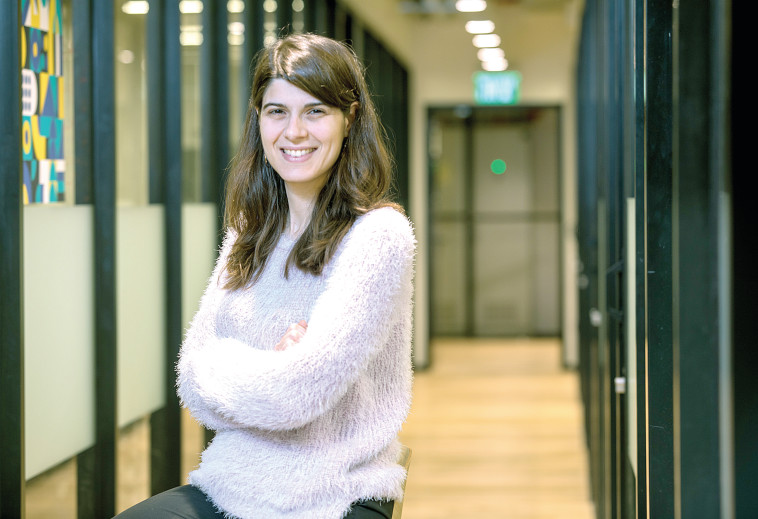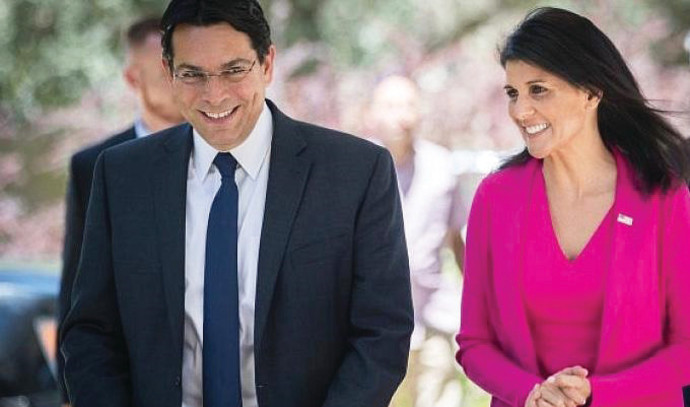“It would be devastating and a massive step backwards if the United States renewed its original nuclear deal with Iran,” former United States Ambassador to the United Nations Nicki Haley said at the DiploTech Global Summit 2020 in Tel Aviv for the first time in collaboration with the Jerusalem Post.
In an exclusive interview with Danny Danon, Israel’s 17th ambassador to the United Nations who was also recently elected chairman of the World Likud, Hailey said: “US sanctions on Iran have knocked the Iranians to their knees. I suggest the United States allow Iran to return to the negotiating table and force it Prove what she intends to do before anything is done. “
According to Haley, although the Iranian people may want peace, the country’s leaders have no intention of bringing peace to the Middle East. Ambassador Danon, who worked with Hailey during their time together at the UN, responded: “On the issue of Iran’s nuclear armament, Israel cannot make mistakes.”
“Israel is proving to continue to be a start-up nation when it comes to technology,” added Ambassador Danon, a leader in the Diplotech 2020 Initiative. “The world recognizes that Israel has a lot to offer in terms of innovation and partnerships, from agricultural and water technologies to health and cyber security. “We welcome global partners to discuss solutions to the post-corona world that will help change our lives for the better today and build the world of tomorrow.”
- Are you afraid of the vaccine for Corona? These are the things you must know Click for details
At the conference, former Ambassador Haley urged the Trump administration, which in 2018 stopped funding UNRWA, the United Nations Relief and Works Agency for Palestine Refugees, to revoke the confidential classification of the actual number of refugees in the UNRWA program and reveal the information before the Biden administration takes office. “The whole world assumes there are millions of people who are considered refugees by UNRWA, but they will never talk about the facts,” she said. “This is an important step towards peace and also towards the truth. Everyone deserves to know the true number of refugees.”
 Kira Radinsky (Photo: Yossi Aloni)
Kira Radinsky (Photo: Yossi Aloni)Without limits
DiploTech Global Summit 2020, held virtually due to Corona’s limitations, brought together leaders from around the world, including heads of state, policymakers, diplomats, investors and pioneers from various fields such as technological innovation in medicine, high-tech, agriculture, communications and more.
The Jerusalem Post’s news editor, Maayan Hoffman, moderated two panels with leaders from the high-tech world on the challenges and solutions for a sustainable collective future and the preparation of an initiated outline for the post-Corona post, where innovation and technology will play an even greater role.
The first panel, “Israeli Technology and Future Sustainable Solutions”, was attended by Maggie Abacis, CEO of Green Wall Israel, part of Vertical Field, which develops technological solutions for vertical agriculture and green walls in urban areas; Zack Fenster, Vice President of Business Development at Watergen, Which produces water from the air; and Ofir Ardon, CEO of Agritask, which provides farmers with solutions to improve productivity.
According to Fenster, the shortage of drinking water, affecting both developing and most advanced countries, necessitates new approaches to provide immediate solutions. Abacus noted that the corona plague has revealed the weaknesses of poor urban planning, extensive urban density and inefficient infrastructure – issues that need to be addressed in the future. Ardon noted that due to the Corona crisis, more and more companies will support remote work, and his company is working on solutions that will help with that.
The second panel, “The Post-Corona World,” focused on technological solutions developed during the Corona crisis and will continue to be implemented or further developed in the post-crisis world. Participants included Dr. Kira Radinsky, Chair and CTO of Diagnostic Robotics; Asher Dagan, CEO of Britannica Knowledge Systems; Rafi Kaminer, CEO of the Pangea Group, and Masoud al-Awar, CEO of Medallion Associates from the UAE.
According to Dr. Radinsky, with the outbreak of the corona, her company set up a clinical triage system (for initial screening of patients according to the severity of the disease) that identified the loss of taste and smell as a symptom of the disease, just three days after the outbreak of the virus. The patient was able to predict which patients would need hospitalization and who would be able to stay at home. This allowed hospitals to reduce the load before the corona test system was activated. She said due to advances in coronary medical data analysis, many medical processes could become automated in the future. Medical treatment.
Kaminer, whose company develops access control systems, has developed non-contact and friction-free systems that provide access to areas such as airports and office buildings without the need for visitors to obtain physical clearance from other people nearby, thus reducing the risk of contamination. They are currently working with the World Health Organization to develop mobile and biometric vaccine cards to encourage the global economy as soon as the virus fades.
Dagan develops training systems for large companies such as Boeing and NASA. He noted that the corona crisis has forced companies to move from training in classrooms to online learning – a challenging move for organizations subject to regulation.
Al-Awar commented on the effects of the corona on the UAE and recounted how his country managed to maintain a supply of food and medicine during this challenging period. According to him, the advanced development of infrastructure in the UAE accelerated during this period. Al-Awar also noted that future cooperation with Israel on this front will continue because “technology has no borders.”
The conference was hosted by Fox News’ economics presenter Liz Kleiman and was attended by leaders from Marshall, Guatemala, Antigua and Barbuda, who spoke about the importance of technological innovation in the post-Corona world, and Israel’s vital role today and after the Corona crisis.
